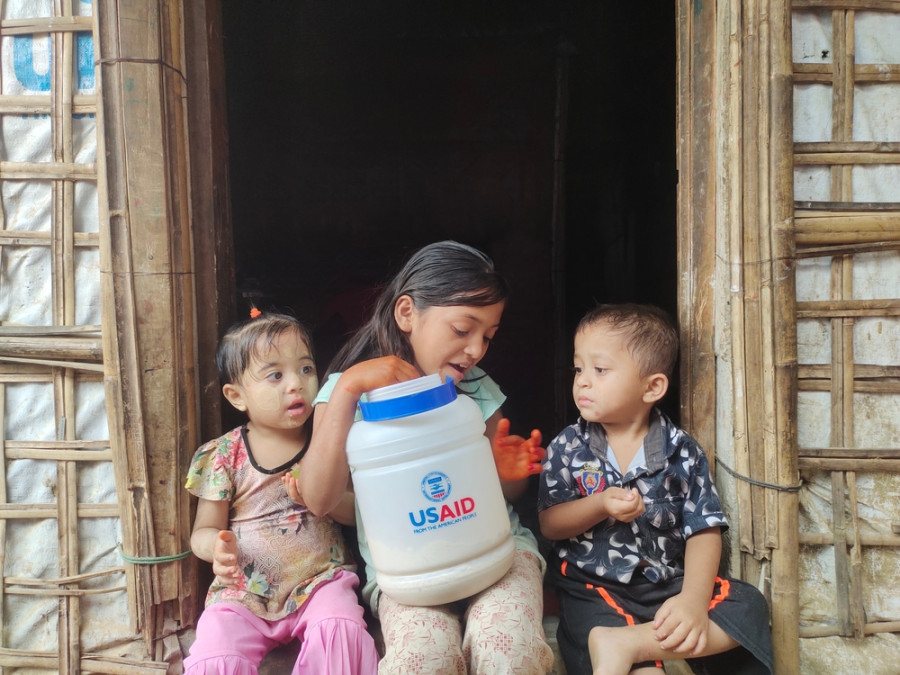Columns
What follows the end of USAID
Trump’s decision to slash the agency hurts American soft power and makes the world less safe.
Chase Johnson
The Trump administration’s foreign policy has raised alarms. It seems to have shifted America away from its traditional NATO allies, favouring instead a closer relationship with Russia. There has also been talk of plans to control Greenland, the Panama Canal—possibly even Canada. This has caused sleepless nights for political leaders, especially in Europe.
However, in the developing world, the biggest concern is the US government’s suspension of development aid. For people in these regions, access to clean water, seeds for crops and vaccines is a matter of life or death.
The suspension is presently the subject of a battle in the US Supreme Court, but at the end of February, the administration said it planned to cut 90 percent of all overseas aid contracts. With a single stroke of President Trump’s Sharpie pen, this has struck out $60 billion (£39 billion) of US aid assistance, globally. Internal projections by the (USAID), published by The New York Times at the beginning of March, forecast dire consequences, including a massive increase in diseases such as malaria and polio as well as a rise in cases of malnutrition of up to a million children.
USAID was founded in 1961 under John F Kennedy’s administration. It operated with an annual budget of about $58 billion—orders of magnitude larger than any other country’s development portfolio. It maintains a staff of diplomats, subject experts and also employs local nationals around the world. It is a critical component of US soft power and works in close proximity to the country’s national security interests.
USAID’s absence will be felt around the world. Perhaps the most consequential effect lies with the freezing of American food aid. Experts have already predicted that without this lifeline, Sudan could face a famine to compound the effects of the civil war that has raged there. The consequences of this will be very public, producing heartbreaking headlines and images. But there is another side to this that the Trump administration seems to be overlooking. USAID is one of the largest single customers of American farm products that constitute the country’s food aid packages—one million metric tonnes in 2024 alone.
One of the most misunderstood concepts of foreign aid is the fact that large portions of its budget are spent domestically. A report may say that billions of dollars of food aid were given by the US to Sudan—but much of that represents payments to American farmers who are growing the food that is then donated to starving people—not just in Sudan, either.
America’s farmers already exist on very tight margins, so an unexpected loss in revenue such as this, is likely to be a serious blow to them as well. It’s just one example of the effect this decision will have both at home and abroad.
Pulling away the safety net
Without USAID the world is less safe. There is a large body of research on how development assistance is a critical componentof an effective national security strategy. In 2018, the then secretary of defense, Jim Mattis, who was appointed by Trump, said in an interview that his message to the world is: “Work with our diplomats because you do not want to fight the Department of Defense.”
To illustrate Mattis’s point, consider the academic work done on the emergence of climate-driven conflicts driven by water and food shortages. One crisis simulation I use in my classrooms puts students in the role of solving a kinetic (shooting) war over water rights in the Horn of Africa. This particular crisis, while used as a game to teach national security, could very easily become a reality. It’s the sort of thing USAID helps to prevent.
I have had the fortune to serve my country in several capacities. Before I started my doctorate in intelligence and national security, I spent four years working for the US government, both as a development worker and in the diplomatic and defence sectors. While diplomacy, defence and development work might look very different on the surface, I can attest that they are quite similar—and very closely linked.
They operate in very different spheres—but the goal is ultimately the same: To help partner nations enhance their own safety and prosperity. Without this help they may turn to adversaries such as Russia and China to provide assistance and security. These adversaries then have an opportunity to expand their influence around the world, which can include supporting dictatorships and predatory lending, such as seen in the Chinese belt and road initiative.
Peacekeeping through soft power
As a US peace corps volunteer, I called on USAID funding to help the community I was assigned to. In Akhaltsikhe, Georgia I taught English and coordinated youth development programmes.
The Akhaltsikhe region is one of the poorest in the country—and the school was in a sorry state of affairs. With a USAID grant, we were able to renovate part of the school and create an English language learning centre, which still thrives today, 12 years later. I can say first-hand that this project had a big impact on the image of the US among the Georgian people in my community.
It should go without saying that the US has a chequered past when it comes to some of its foreign policy interventions. But the country’s wealth and resources offer it the unique position to help grow and enhance western values in parts of the world that deserve the same freedom that developed countries in the west take for granted. In my opinion, that is money well spent. Whatever value one might place on the US global footprint does not erase the truth of its existence. America is called upon to uphold democracy, to lift people out of poverty and to respond to crises no matter where they are. Donald Trump, Elon Musk and his Doge staffers should have paid greater heed to USAID’s motto: “From the American people.”
- The Conversation
Find the original article here.




 9.83°C Kathmandu
9.83°C Kathmandu















